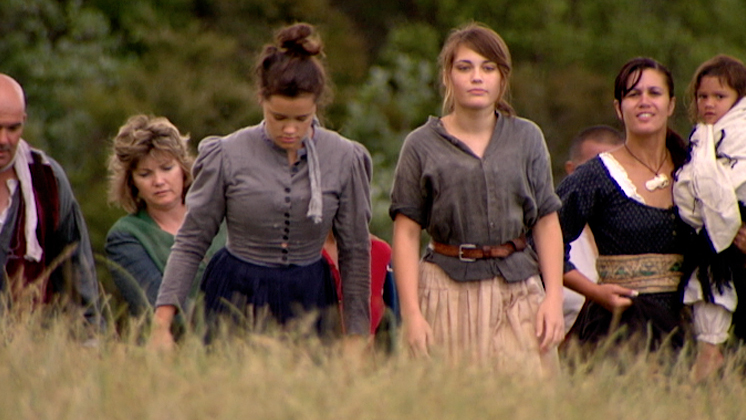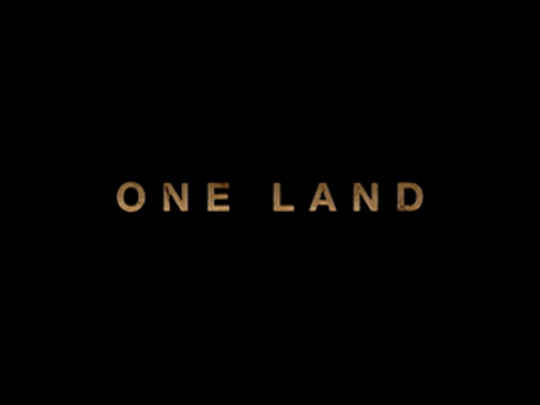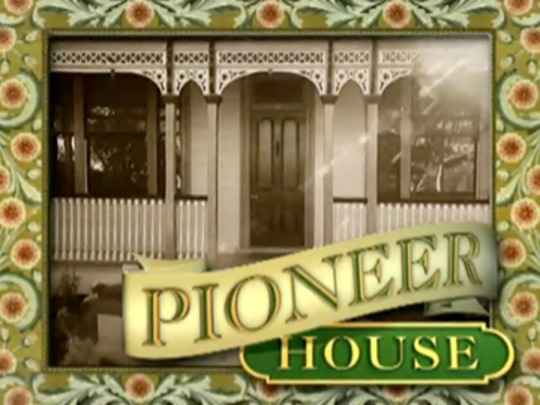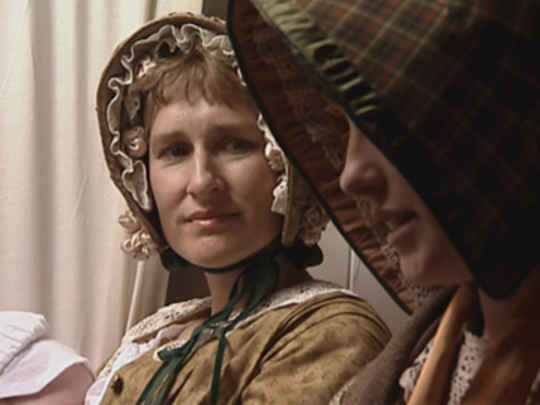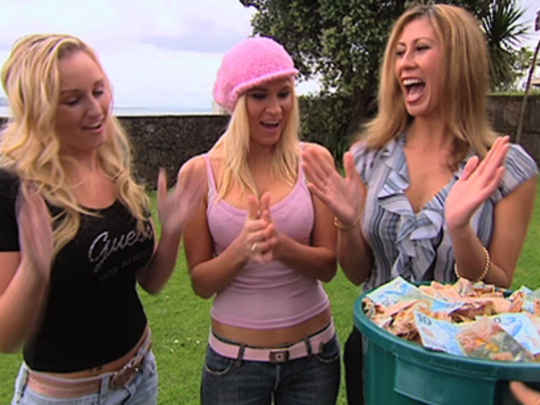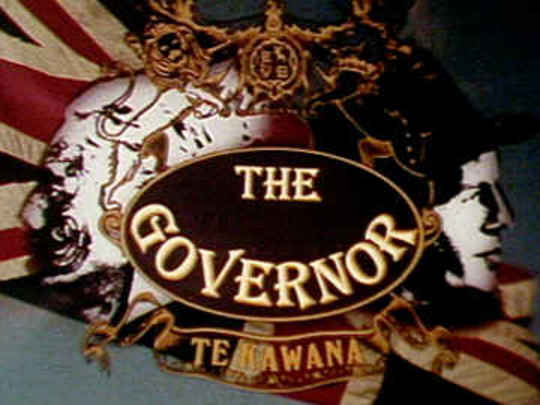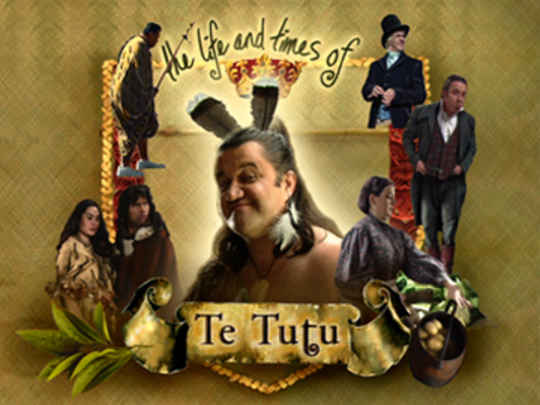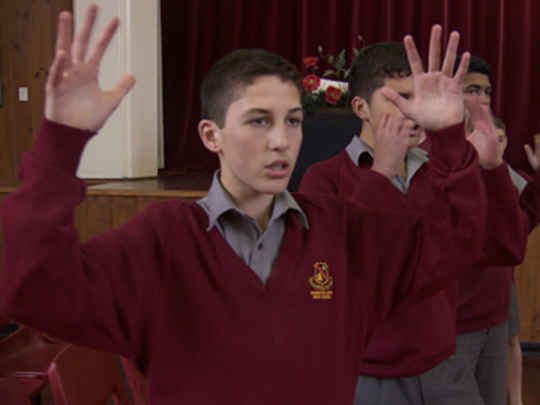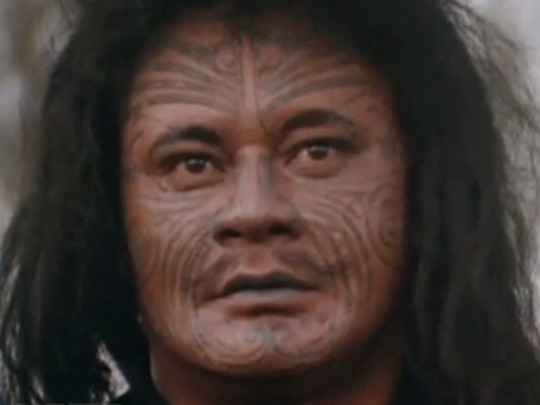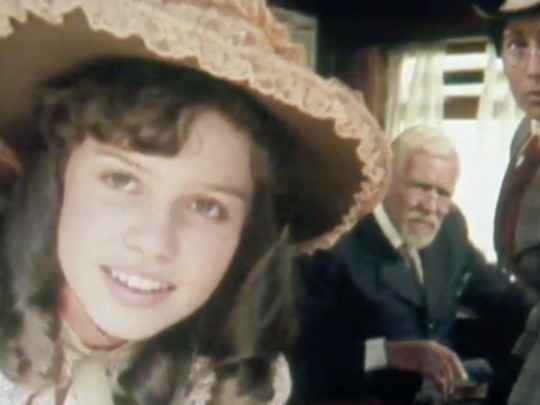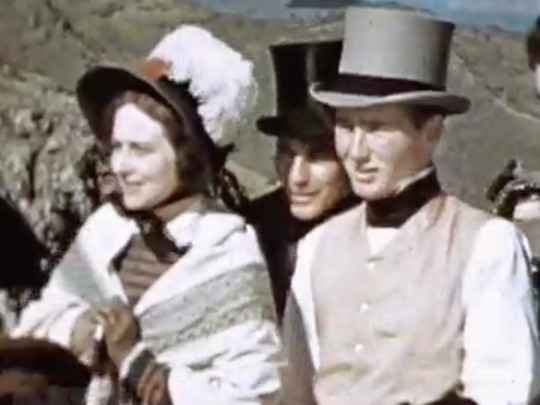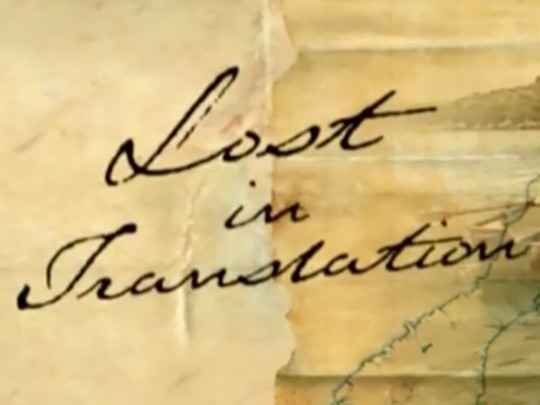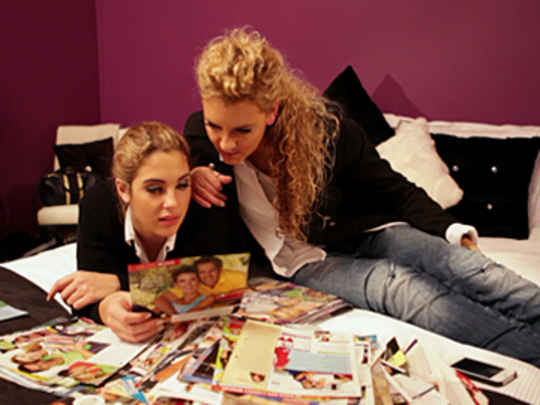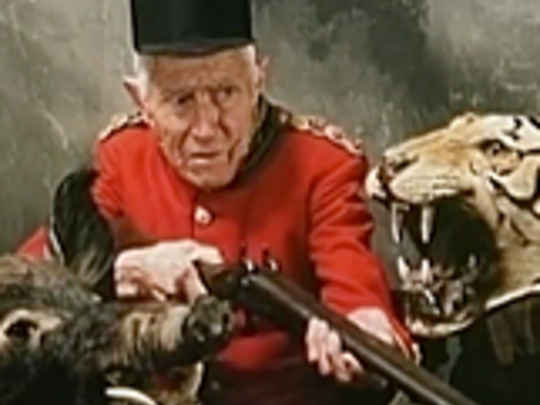The first episode of six from this television series
The second episode of six from this television series
The third episode of six from this television series
The fourth episode of six from this television series
The fifth episode of six from this television series
The sixth of six episodes from this television series
One Land - Full Series
Television (Full Length Episodes) – 2009
...I know already, along with the cured eel and wet crinolines, there is going to be lots of hugging and lots of learning between the Pākehā and Māori families ... who knew the company that brought us Celebrity Treasure Island could be so restrained and scholarly?– Deborah Hill Cone reviews the first episode, The Herald on Sunday, 14 December 2009
The premise for the show is the sort of thing that causes New Zealand on Air executives to wet their panties.– Deborah Hill Cone in a review of the first episode, The Herald on Sunday, 14 December 2009
What would happen if you went back in time to live here? New Zealand as it was in the 1850s — a land where our Māori and European ancestors lived side by side.– Narrator Rachel House, at the start of the first episode
No electricity. No toilets. No running water. Not even the basics of modern-day life. Instead they must struggle with whalebone corsets, waka, and depending on each other for their survival.– Narrator Rachel House on the realities of the 1850s experience, at the start of the first episode
It's pretty cool — but I don't think it's six weeks cool.– Jessica Dalrymple describes her new home, in episode one
It was very important, to be true to the time period, to have fluent Māori spoken on the pā and a very important part of getting this cultural and social experiment right. This is a huge leap forward for Māori language to be integrated into the series as part of everyday life.– One Land executive producer Bailey Mackey
I was a bit sad, and a bit angry at them, because I didn't want them to kill a turkey. If he kills the chickens I will punch him so hard he will never kill a chicken again.– Eleven-year-old Nadia Smith on her brother killing a turkey, in episode four
It's an 1850s pisshole shack, and there's no fly spray and it's disgusting. And the chicken's shitting around your backyard, which you have to do to get eggs, and it's unhygienic and it's just disgusting.– Tarnia Smith tires of her 1850s dwelling after trying to kill some flies, in episode five
...I have lived their oppression, and I have full empathy for the women of the 1850s: the subservient, second class role that they had to endure. The clothing is ridiculous; no woman would stand over a sweltering hot fire, cooking a meal for three hours with a cast iron pot, in four layers of clothing ... Bollocks, absolute bollocks. I am burning my corset.– Tarnia Smith on experiencing what women went through in the 1850s, in episode six
If I didn't do this, I would never know what it was like staying on a pā ... all the dynamics of livnig this way. So we are very fortunate to be a part of this experience. Despite the highs and the lows, the good and the bad...it is worth it.– Aramahou Ririni looks back on the experience, in the last episode
That family is awesome. They have a great spirit. Despite the ups and downs...they still remain good to you.– Aramahou Ririni on befriending the Smith family, in episode six
The Smiths had nothing to lose. They had everything to gain in terms of what Māori had to offer them, particularly from the Ririnui family. It's probably the crux of the whole project. And it's pretty ironic that they had to go back to 1850 to have learnt so much, and to have appreciated Māori culture.– Tikanga expert Amster Reedy on the Pākehā Smith family, in episode six
Back in the 1850s, our settler family would have been enticed to this foriegn country with the promise of a land parcel — just like this one. But the Smiths also have to abide by the very British social etiquettes of the time. And that means the women do all the housework and cooking...– Narrator Rachel House, at the start of episode two
...all three families, especially the European settlers, are struggling with the role of females in the 1850s.– Narrator Rachel House, at the start of episode three
Being here is like really cool, but I'm not like connecting with anything. I'm not like "yay, this is what my people did" or whatever. I'm just like "gutted to be them — because this sucks."– Teenager Jessica Dalrymple on the One Land experience, at the start of episode three
There's a real rift going on at the moment.– Sally Dalrymple tells the Smith family about tensions between the two families living up at the pā, in episode three
Sally is the only member of her family who is not Māori. She agreed to take part in this cultural experiment to support them, but now she is having second thoughts.– Narrator Rachel House on growing tensions for the Dalrymple family, in episode four
The Smiths will live as a European working class settler family, their only possessions what they can carry. On the pā, two very different Māori families will live together. The Ririnui family are deeply immersed in their own culture, and will only speak te reo Māori; while the Dalrymples have long ago turned their backs on their Māori heritage.– Narrator Rachel House introduces the three families, at the start of episode one
